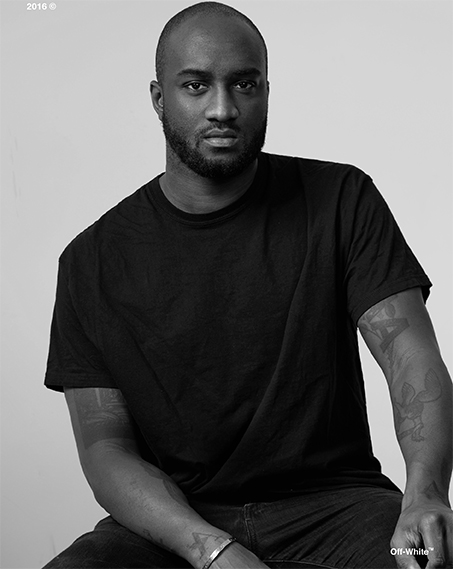 “I have been refusing to put words down, afraid they might make real something none of us is anywhere close to accepting: Virgil Abloh, the architect, fashion designer, possible prophet, exquisite DJ, eternal collaborator, and brilliant friend, husband, father, and son, has died after privately battling a rare, aggressive form of cancer for over two years.
“I have been refusing to put words down, afraid they might make real something none of us is anywhere close to accepting: Virgil Abloh, the architect, fashion designer, possible prophet, exquisite DJ, eternal collaborator, and brilliant friend, husband, father, and son, has died after privately battling a rare, aggressive form of cancer for over two years.
We had known each other for years, and worked together on too many projects to count when I invited him in 2017 to give a talk to our small student cohort of the Core 3 design studio at the GSD. Before we knew it, we got calls from the administration, asking: “Is Virgil Abloh giving a lecture? High school students have been calling to ask if they can attend.” Well, they didn’t just attend, they showed up, hours early, lining the walls of the GSD for what was, for many, their first lecture. And with that, all sorts of people whose lives would otherwise unlikely intersect, filled the lecture hall to the brim. No other single voice was able to connect with youth in the past troublesome decade the way Virgil did, and he did so naturally, because he was youth incarnate. The rest is living history. The talk became the GSD’s most watched lecture, followed by Incidents, the instantly sold-out transcript of the lecture, which was ultimately translated into Japanese.
Last summer—that 2020 summer—he wanted to see what we could do to bring architecture schools closer to the streets. We had been trying for years, in various ways, to cross what felt like a disconnect between the profession and education, between skill and purpose. Within two months, we created a seminar at the GSD in collaboration with the Stanford Legal Design Lab, where law and architecture students were working together, addressing the real-time changes the justice system was undergoing due to the pandemic. Virgil noted, “That invisible hand of design is why this course exists, because it’s often easy to say, ‘Hey, that’s not our responsibility,’ but ultimately, our human responsibility is to make it so that everyone can understand the basic premise of design, which is the basic premise of helping people.” It takes an incredible amount of work and luck for all the stars needed for this project to align, but Virgil liked aiming for the stars. And time and time again, he was able to reach for new heights, with his vision, his humbleness, and a generosity of resources.
The first grieving email I received last Sunday was from a former student: “I can’t explain how powerful it was to witness a Black designer speak so directly to us young people.” Virgil meant so many things to so many people: I keep thinking of him as a glue that held people together, the conduit to so many great leaps, the spark to so much trouble. If you drew a map of his reach, it would cover the world. This pertains to fashion, to music, to design, to philanthropy, but really, it’s about a spirit that transcended any definition. That was the very point.
Few people achieve in a lifetime what Virgil Abloh did in too short of a time: he broke the odds, not just once, for fun, but as a rule. It’s not that he didn’t face obstacles. On the contrary, he chose to ignore them as such, use them as a springboard, revealing their hypocrisy and limitations, carving a path not just for himself, but for generations to come. It’s hard not to smile between the tears, because he always shared his lust for life freely and his infectious, raspy laughter.
It was also 2017 when I told him about my own cancer diagnosis and he texted back in a heartbeat “Love you, cancer can’t stop us”. We didn’t know the cards we were dealt. A couple of weeks ago, as we were talking through the impossible challenge of such an illness, he said something very powerful: “What a crash course in loving this task deals us.” It struck me how universal, how true, how well it encapsulates life at its hardest. And this is the task we have been dealt now, too, a crash course in loving.
In doing so we will continue to live in a world shaped by him and while the world is certainly lesser without Virgil, we were lucky to have had him in the first place.”